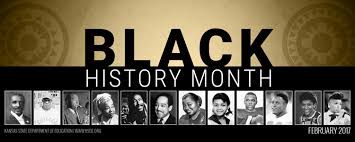
Success is to be measured not so much by the position that one has reached in life as by the obstacles which he has overcome while trying to succeed. – Booker T. Washington
In celebration of Black History Month, here are twenty inspirational quotes to think about. In the spirit of the words of Dr. Martin Luther King, Jr. who said, “I have decided to stick with love. Hate is too great a burden to bear,” let’s recommit ourselves to being messengers of love in a world that so desperately needs it.
“ The most important thing is to try and inspire people so that they can be great in whatever they want to do.” – Kobe Bryant
“The battles that count aren’t the ones for gold medals. The struggles within yourself- the invisible, inevitable battles inside us all- that’s where it’s at.” – Jesse Owens
“Just don’t give up what you’re trying to do. Where there is love and inspiration, I don’t think you can go wrong.” – Ella Fitzgerald
“Change will not come if we wait for some other person or some other time. We are the ones we’ve been waiting for. We are the change that we seek.” – President Barack Obama
“Every great dream begins with a dreamer.” – Harriet Tubman
“Great leaders are almost always great simplifiers, who can cut through argument, debate and doubt, to offer a solution everybody can understand.” – Colin Powell
“I hated every minute of training, but I said, ‘Don’t quit. Suffer now and live the rest of your life as a champion.” – Muhammad Ali
“Never be limited by other people’s limited imaginations.” – Mae Jemison
“If there is no struggle, there is no progress.” – Frederick Douglass
“Hold fast to dreams, for if dreams die, life is a broken-winged bird that cannot fly.” – Langston Hughes
“Where there is no vision, there is no hope.” – George Washington Carver
“Bringing the gifts that my ancestors gave, I am the dream and the hope of the slave. I rise. I rise. I rise.” – Maya Angelou

“When I dare to be powerful -to use my strength in service to my vision, then it becomes less and less important whether I am afraid.” – Audre Lorde
“Surround yourself only with people who are going to take you higher.” – Oprah
“The progress of the world will call for the best that all of us have to give.” – Mary McLeod Bethune
“Some people want it to happen, some wish it would happen, others make it happen.” – Michael Jordan
“One important key to success is self-confidence. An important key to self-confidence is preparation.” – Arthur Ashe
“Dreams are lovely but they are just dreams. Fleeting, ephemeral, pretty. But dreams do not come true just because you dream them. It’s hard work that makes things happen. It’s hard work that creates change.” – Shondra Rhimes
“Never underestimate the power of dreams and the influence of the human spirit. We are all the same in this notion: The potential for greatness lives within each of us.” – Wilma Rudolph
“Don’t sit down and wait for the opportunities to come. Get up and make them!” – Madam CJ Walker
©2020 Doug Dickerson








